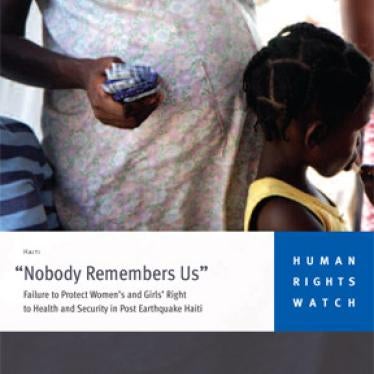What does a clean toilet have to do with human rights?
A surprising amount actually.
In Haiti, latrines and water for drinking and hand washing are extremely scarce in schools. Nearly 60 percent of schools lack toilets and more than three-fourths lack water. In September, Human Rights Watch spoke to teachers in Haiti who said that diarrheal disease frequently causes kids to miss school and lack of hygiene means that girls often must stay home when they menstruate.
These stark facts are worth keeping in mind as the Lantos Human Rights Commission in the United States Congress holds a hearing Wednesday on Aid Delivery in Haiti, focusing on the need to elevate rights-based international aid.
Why is a rights-based approach important? Well, to start human rights are interrelated. Aid that ignores how different human rights support other rights – say for instance how the lack of toilets in schools can impede the right to an education - can undermine development efforts. Providing toilets, but not security, can mean that girls are too afraid to use them.
A 2012 survey in Haiti found that school-aged children (age 5-19) represented the highest percentage of cholera victims. Billions of dollars have been pledged in response to the outbreak that infected 700,000 people. Yet, the schools Human Rights Watch visited that had been constructed since the cholera epidemic still lacked adequate water and sanitation facilities.
No one donor can solve Haiti’s development struggles, but each donor can ensure that its funding recognizes and accounts for the interrelatedness of rights. Making sure funding aimed at kids takes into account their need for a safe place to go to the bathroom and wash their hands is a good place to start.








